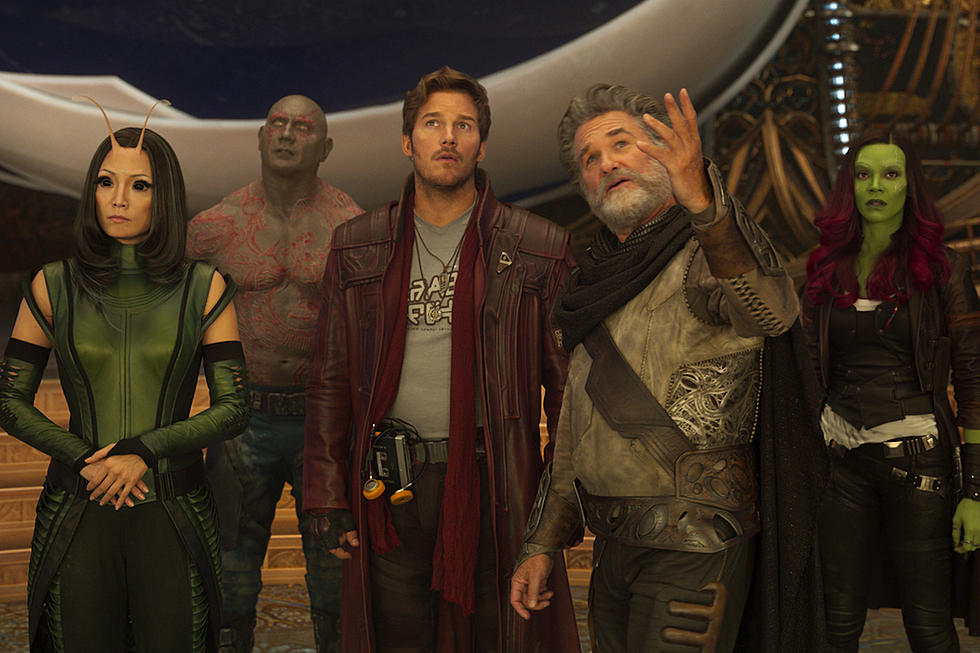
Afghan Whigs Albums Ranked in Order of Awesomeness
As one of the first non-Pacific Northwest bands signed to Sub Pop, the Afghan Whigs naturally had an outsider's mentality. We're ranking all of their albums in order of awesomeness.
Hailing from Cincinnati, the band had little in common musically with their Seattle-based brethren, taking cues from soul luminaries like Johnnie Taylor and the Spinners more than aggro punk rock and moping for the sake of mopery. That didn’t mean the Whigs shied away from turning up the volume – far from it.
Led by the suave maneuverings of rough-and-tumble singer/guitarist Greg Dulli, it was the infusion of soul into an edgy modern rock sound that kept people listening long after the Sub Pop curiosity wore off. The core framework of the group was rounded out by the inspired resilience of guitarist Rick McCollum and bassist John Curley. Behind the drums, the seat always seemed to be adorned with a "For Rent" sign, yet the band dynamic never seemed to suffer because of it.
There was an unflinching honesty to Dulli’s lyrics that left him nailed to the cross by a host of poison-penned scribes, speared by tags of “misogynist,” “Lothario” and “pig.” That shortsightedness didn’t give him the proper credit for exposing his most vulnerable parts, no matter how flawed they may be. Many more people who heard them got it than didn’t, with guys a bit peeved that Dulli was giving away their most hidden thoughts, and women wanting to nurture him with a warm blanket and a bowl of soup – which may or may not have come after he was tied to the bedpost and told what a bad boy he had been.
Speaking to the Village Voice in 2012, Dulli said he, “Used to live and breathe and feel those stories.” And right or wrong, he was going to vocalize it. When he sang, “Since you're aware of the consequences / I can pimp what's left of this wreck on you,” on 1993’s Gentlemen, it might not have been pretty, but at least it was authentic.
For a period in the ‘90s, each record was better than the next. The Whigs were still getting their legs with Up in It, and by the time 1965 came out in 1998, they had blazed a path not many would have dared venture. It had taken its toll unfortunately; record labels dropping the ball left and right – how “66” wasn’t a massive hit to this day remains a mind-numbing mystery – and not enough people being exposed to the band’s eminence had the guys call it a day as the new millennium dawned.
Dulli turned his focus toward the Twilight Singers, an ever-evolving musical project that boasted appearances by notables from Mark Lanegan to Ani DiFranco to Apollonia. The enigmatic frontman even managed to slip an Afghan Whigs demo onto a Twi-Si EP. Calls for a reunion of his former group kept coming, but other than a brief 2006 sidestep into the studio for two new tracks to add to the enticement of a Whigs retrospective collection, he steadfastly demurred, instead linking up with Lanegan under the Gutter Twins moniker.
Finally, in May 2012, the Whigs returned at the behest of All Tomorrow’s Parties founder Barry Hogan, who asked Dulli to curate both the U.K. and U.S. editions of the festival, and raise his old act from the dead to headline. The second time around was almost as sweet as the first, with Twilight and Gutter Twins guitarist Dave Rosser enriching the overall sound.
When the decision was made to enter the studio for a new LP, 2014’s Do to the Beast, McCollum wouldn’t partake, much to the chagrin of longtime fans, but they caught on quick once they got a load of songs like “Algiers,” “Royal Cream” and “Matamoros.” May 2017 saw the release of the eighth Whigs album, In Spades. It’s a textured album, one that touches on familiar motifs and introduces new ones, hinting at the paranormal and checking the rearview for another look on youth. Look below to see how it ranks with classics like Gentlemen and Black Love as we rate the band’s catalog.
More From Alt 95.7










